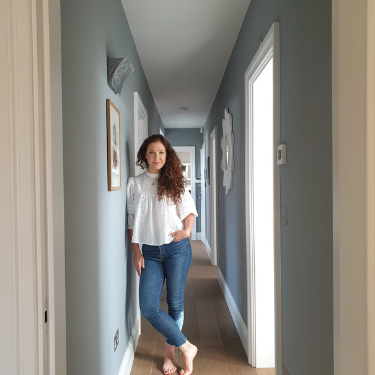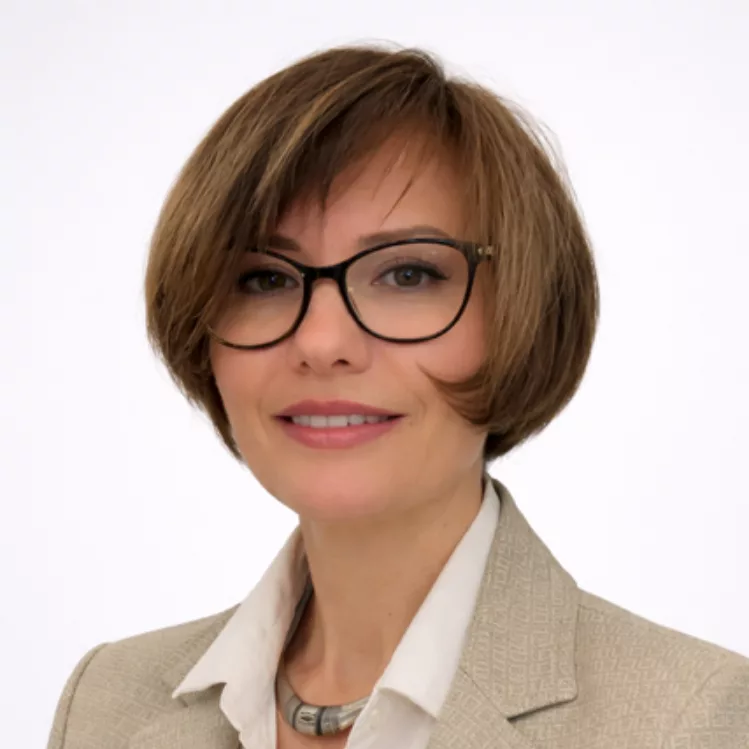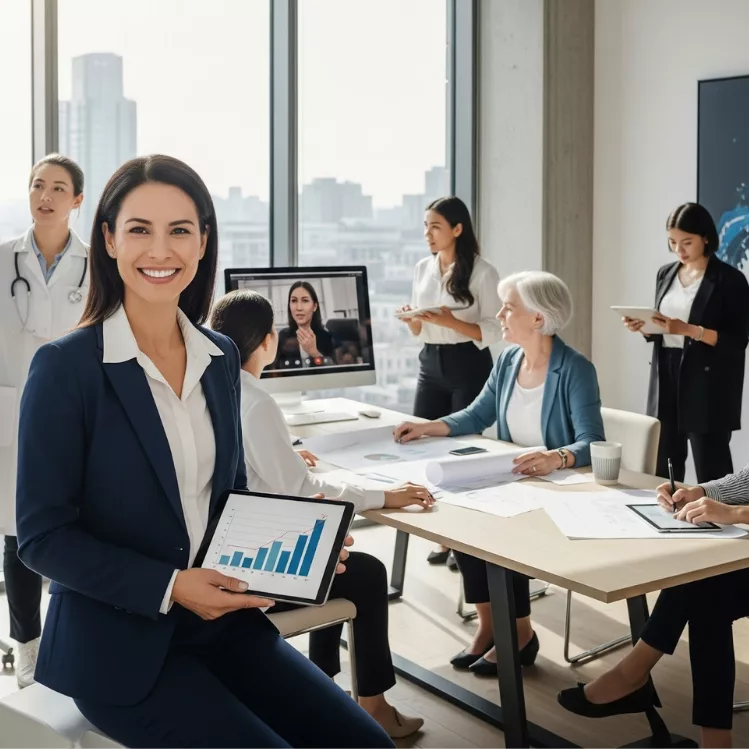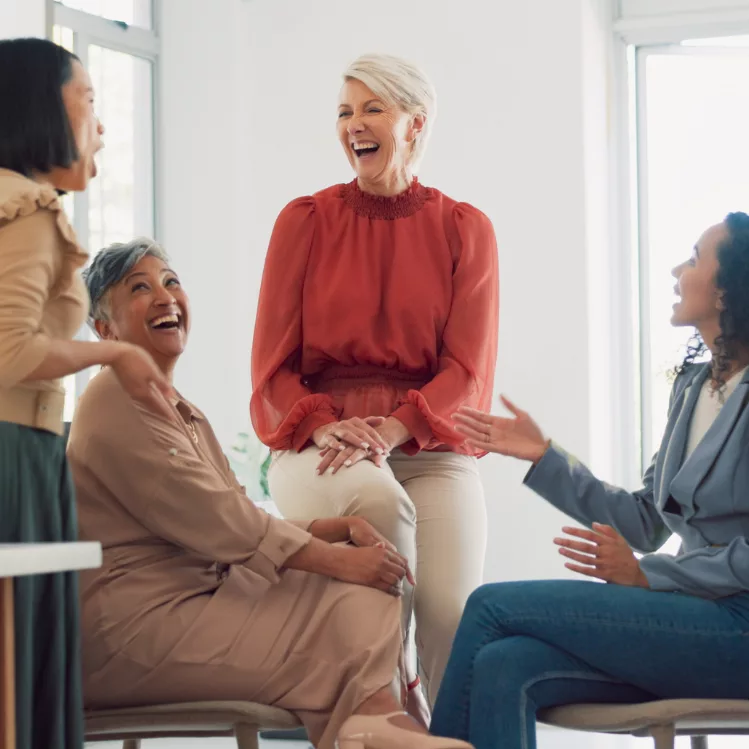
Aisling Connaughton: Making Sustainability Simple & Profitable
Aisling Connaughton is on a mission to transform sustainability from a daunting challenge into an exciting business opportunity. As co-founder of Cyd Connects, a certified B Corp and sustainability consultancy, she helps businesses become a force for good while driving competitive advantage. With an 18-year global career in PR, spanning top brands like L’Oréal and Liz Earle Beauty Co., Aisling brings a fresh, innovative approach to corporate responsibility. A TEDx speaker and guest lecturer at leading universities, she makes sustainability engaging, accessible, and impactful. Now, she’s championing the B Corp movement and the UN Sustainable Development Goals, proving that doing good is also good for business.
Cyd Connects is at the forefront of sustainability consulting. Can you tell us what inspired you to co-found the company and its core mission?
Jenn McGarrigle and I co-founded Cyd Connects after spending years working in the corporate world, convinced there was a better way of doing business.
In business, sustainability means moving from a traditional shareholder model – where the goal is to make as much money as possible for shareholders at any cost – to a stakeholder model. This model considers a broader range of interests, still including shareholders but also expanding to serve all stakeholders, including people and the planet.
While many people in sustainability come from scientific or climate activism backgrounds, my journey was different. I spent over a decade working in the beauty industry, which is rife with greenwashing. The term “greenwashing” was introduced to describe vague or misleading environmental or social claims, and it’s something we still see far too much of today.
Having worked in this environment for so long and seeing it from the inside out, I knew I had to make a change. I decided to retrain and did a master’s in Social Entrepreneurship at Goldsmiths University of London. My goal was clear: to help businesses become part of the solution, not the problem.
As a women-led consultancy, how does Cyd Connects embody a unique approach to sustainability compared to other firms?
The deeper you understand what sustainability really means the more you come to realise that diversity and inclusion have everything to do with the climate crisis. The two are inextricably linked.
The UN Secretary-General has published research that clearly shows one of the solutions to the climate crisis is more women in business.
Solving the climate crisis means moving away from a traditional “shareholder” business model towards a “stakeholder” model which focuses on planet, people and profit. It’s proven that women put purpose at the heart of their business and female-led businesses want to serve people and planet rather than just make profit at any cost.
That means championing female business leaders is now more important than ever. That’s why Global Woman is key – women supporting women to connect, inspire and thrive.
Mother Earth is counting on women to find their voice and be heard to accelerate the Sustainable Development Goals.
You’ve had an impressive career spanning PR, sustainability, and social entrepreneurship. How did your experiences at Huawei, L’Oréal, and Liz Earle shape your current work at Cyd Connects?
Working at Liz Earle taught me there was a different way of doing business. A better way, one that the other companies I’d worked at, and most around the world, weren’t doing.
Liz Earle had started as a journalist and set up her beauty brand due to her frustration with the opaqueness in the beauty industry supply chain. Through working with her I did a blockchain programme at Oxford Saïd Business School on supply chain transparency and it makes you realise everything comes from the planet. Every single thing you touch and hold, from your favourite cream to that shirt on your back, came from the earth.
This realisation reinforced everything I already thought I knew about the importance of doing better business.
What do you think is the biggest challenge businesses face when it comes to adopting sustainable practices, and how can they overcome it?
Sustainability is like tech, it’s moving a million miles an hour so it can be incredibly difficult to stay up to speed on the latest innovations and regulatory requirements. Everyone has a knowledge gap along with a lack of resources and time constraints.
I believe that every business will have to start tracking and measuring when it comes to sustainability. If you can’t measure it you can’t improve it.
Businesses have been allowed to make money without thinking about how it is affecting people and planet – and that’s changing. ESG (environmental social and governance) frameworks are a way to track and measure but they can be costly and many businesses just don’t know where to start.
That’s why I’m such a fan of B Corp. It’s a global, best-in-class ESG framework that works for most business sizes and types.
You’ve worked extensively with the B Corp framework. Can you explain how achieving B Corp certification can be a game-changer for businesses, and what it means in terms of creating lasting impact?
Underpinning B Corp is the B Impact Assessment – this is a free ESG tool that you can Google, download and use. It puts you on a points system and if you get over 80 points then you can go through the process and become B Corp certified.
Once you’re certified you can use the B Corp trust mark on your products and it means that you have legally committed to move your business from a shareholder model to a stakeholder model. It helps you signal to your customers that you are committed to sustainability.
You become part of a community that believes business can be a force for good. Together B Corps show the global business world that there’s a better way.
Through Cyd Connects, you aim to accelerate the Sustainable Development Goals (SDGs). How do you help businesses align their strategies with these global goals?
The United Nations Sustainable Development Goals are a North Star.
We help businesses figure out what SDGs are relevant for their business and where to focus. Understanding clearly defined goals and knowing how and why they’re important to the business helps leaders within the organisation set plans that will bring them closer to the goals.
At Cyd Connects we’re committed to achieving Sustainable Development Goal 5: Gender equality, with a focus on target 5.5 which is; ensure women’s full and effective participation and equal opportunities for leadership at all levels of decision-making in political, economic and public life.
Many businesses view sustainability as a cost. How do you shift the narrative to help them see it as a competitive advantage?
It’s true, many businesses do assume sustainability is an expensive commitment, but in reality, it often reduces costs.
Energy efficiency such as LED lighting, better insulation, and smart HVAC systems help to lower utility bills. Waste reduction, which can be achieved through circular economy practices and recycling, can minimise disposal costs.
Introducing sustainability practices can also protect against regulatory, operational, and reputational risks.
Carbon taxes, emissions regulations, and extended producer responsibility laws are increasing worldwide and understanding sustainability within the scope of your business helps you to avoid risks and stay compliant.
It’s more than just a competitive advantage; it’s a competitive imperative. Companies that ignore sustainability risk falling behind as regulators tighten standards, investors prioritise ESG-focused businesses, and consumers increasingly shift toward sustainable brands.
In your TEDx talk, you mentioned making sustainability “simple, innovative, and fun.” How do you translate complex concepts into engaging and actionable strategies for your clients?
There’s so much finger-pointing and blame in sustainability, but we turn that on its head. Instead of looking back with frustration, we look forward with enthusiasm and positivity. We have to make sustainability engaging, or no one will make the change we need.
We begin by focusing on the bigger picture; why we need to make change happen.
Sustainability is complex, so to make it engaging, we connect it to things people can relate to, such as why it matters to their business, real-world examples and storytelling, step-by-step guidance to make it achievable, and visual elements. Being neurodivergent, I learn better visually, so we incorporate this approach into the business.
With your background in PR and marketing, how do you incorporate storytelling to amplify the impact of sustainability initiatives?
Communication in any industry benefits enormously from storytelling. People connect and relate far more when real people or situations are involved.
In Mary Robinson’s book, Climate Justice, she uses storytelling as an incredible tool, by introducing the readers to victims of climate change and explaining in detail the harm and suffering it has caused.
It works the other way too. When we share stories with the businesses we work with – about others who have seen positive impacts throughout their operations thanks to sustainability initiatives – it helps them understand the direct benefits for their own business, as well as for people and the planet. For example, when large companies see how others have reduced costs through energy efficiency and waste reduction, it becomes much easier for them to envision doing the same.
You’re an advocate for female leadership in the business world, especially in sustainability. How can women leaders influence the future of sustainable business practices?
To go back to something I mentioned earlier, I believe more women in leadership roles is one of the answers to the climate crisis, and this belief is backed up by research carried out by the UN Secretary-General.
Women haven’t always had the opportunities in business that we have today, and this is still deeply ingrained in society and the way we subconsciously think and feel. It’s taking time for us, as women, to recognise our place in leadership roles – but it is happening, and it’s something I advocate for every day.
Encouraging women to do more than they believe they can has always been important, but it’s more crucial now than ever. Women are far more likely to lead businesses that follow a “stakeholder” model—benefiting everyone and everything the business touches.
What advice would you give to a company just starting out on their sustainability journey? Where should they begin to make the most impact?
I’d tell them to find some small wins. Getting the ball rolling is so important, and the journey to sustainability can be a long one (never-ending, if I’m being honest), so finding something that sparks a sense of achievement early on can be a great motivator. The other great thing is that some of those seemingly small wins can have a huge impact on a business’s sustainability goals.
Once you’ve tackled the immediate – let’s say ‘easy fixes’ – the next step is identifying where improvements are needed before you can start making real progress. This is where assessments and reporting come in.
Becoming a sustainable business isn’t a one-and-done task, so having a plan and a clear path forward makes all the difference. It keeps the journey manageable and the successes rewarding, which is key to actually getting where you want to be.
Looking ahead, what do you see as the biggest opportunity for businesses in terms of sustainability over the next decade?
For years, many businesses have thrived without a moment’s thought for anything beyond shareholder profits. But at the same time, there have always been those that cared – businesses that wanted to do better. The problem was, the path wasn’t always clear. Measuring and assessing sustainability, as well as finding ways to improve, hasn’t always been straightforward.
Now, with the opportunities that B Lab offers through the B Corp impact assessment and certification, it’s far easier for businesses to understand what sustainability means to them.
The journey to becoming a business that’s a force for good is more accessible than ever, and I believe that’s a huge opportunity for businesses in terms of sustainability.
What’s the most rewarding project or partnership Cyd Connects has been a part of, and what made it stand out?
Cyd Connects, as the name suggests, is built on connections. We’re where we are today because of the relationships we’ve built, all of which have been essential to our journey.
Both in business and in our personal lives, the quality of relationships is everything.
2024 was a year of impact. We supported so many companies through their B Corp impact assessments and certifications, and each one was incredibly rewarding. Knowing that we’re helping businesses become the most sustainable version of themselves is the whole point
Here’s to connecting with and supporting even more businesses this year.
Finally, if there’s one message you want every business leader to take away from your work, what would it be?
Better business benefits us all, today and in the future. There are no businesses on a burning planet. As leaders, it’s our opportunity, and responsibility, to take this seriously. With the right tools, you can understand what your business needs to do to make a meaningful impact.
If you’d like support on your journey to becoming B Corp certified, reach out to us at Cyd Connects – we’ll be glad to help.
Here’s the link to the UN Secretary-General’s published research
Here is the link to my TEDx talk






